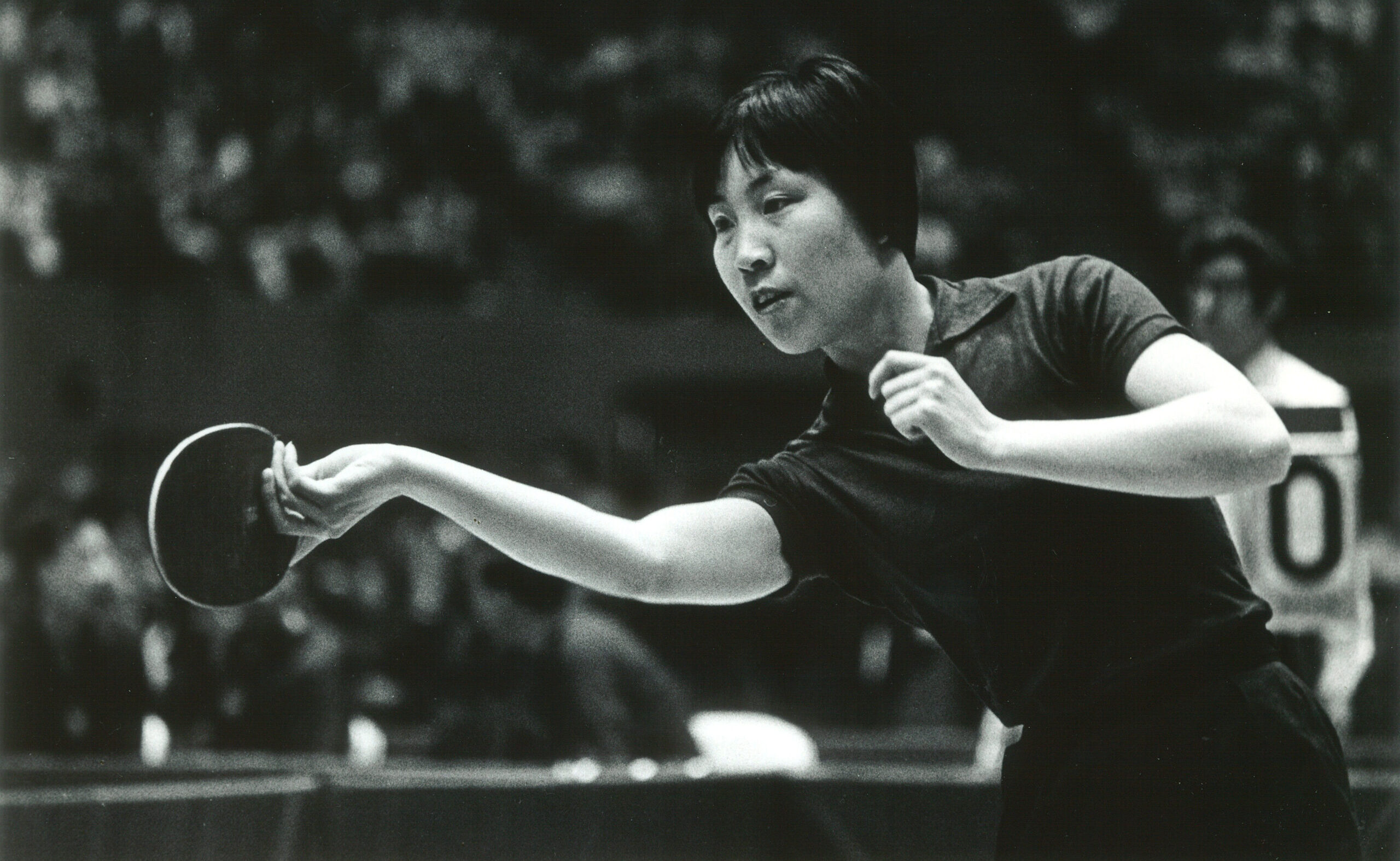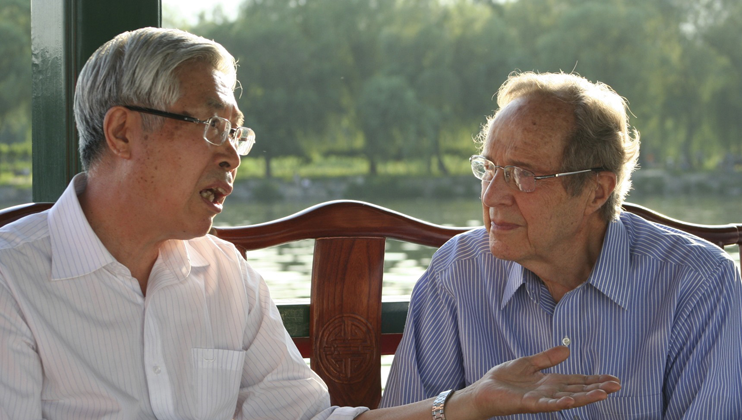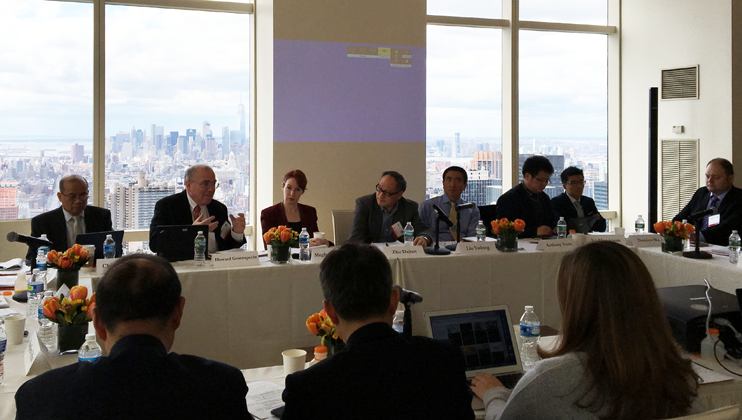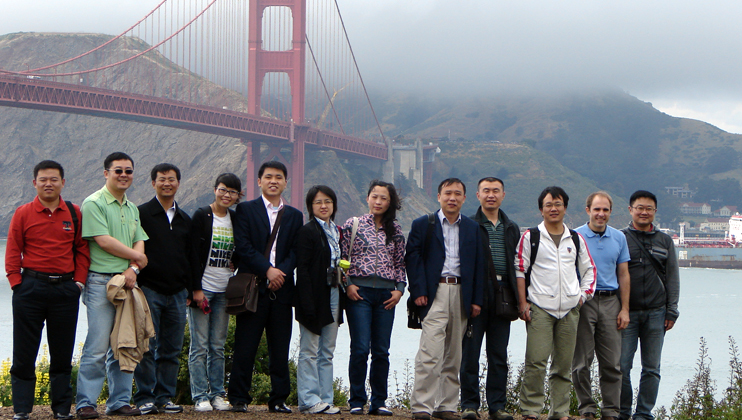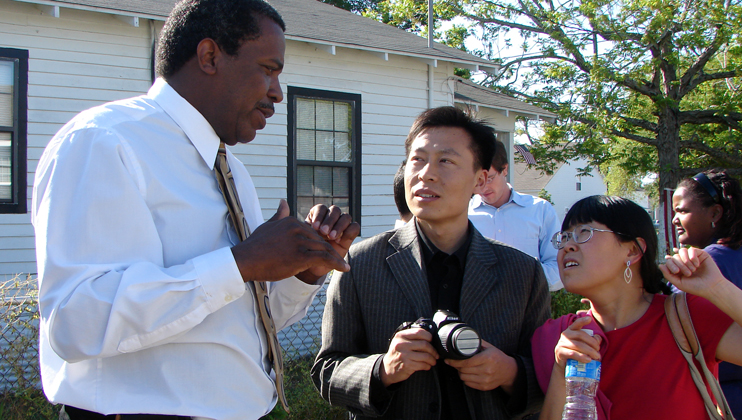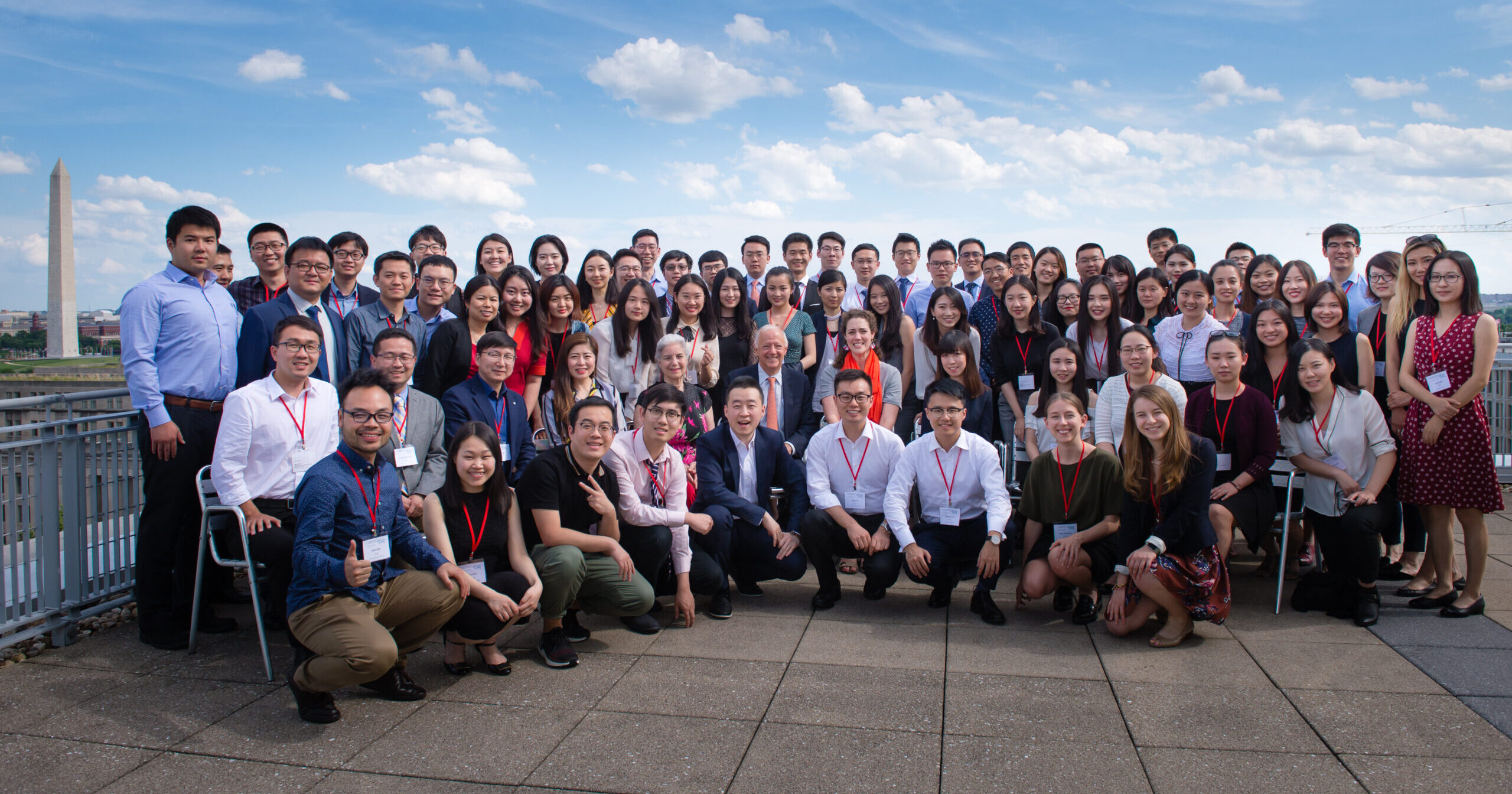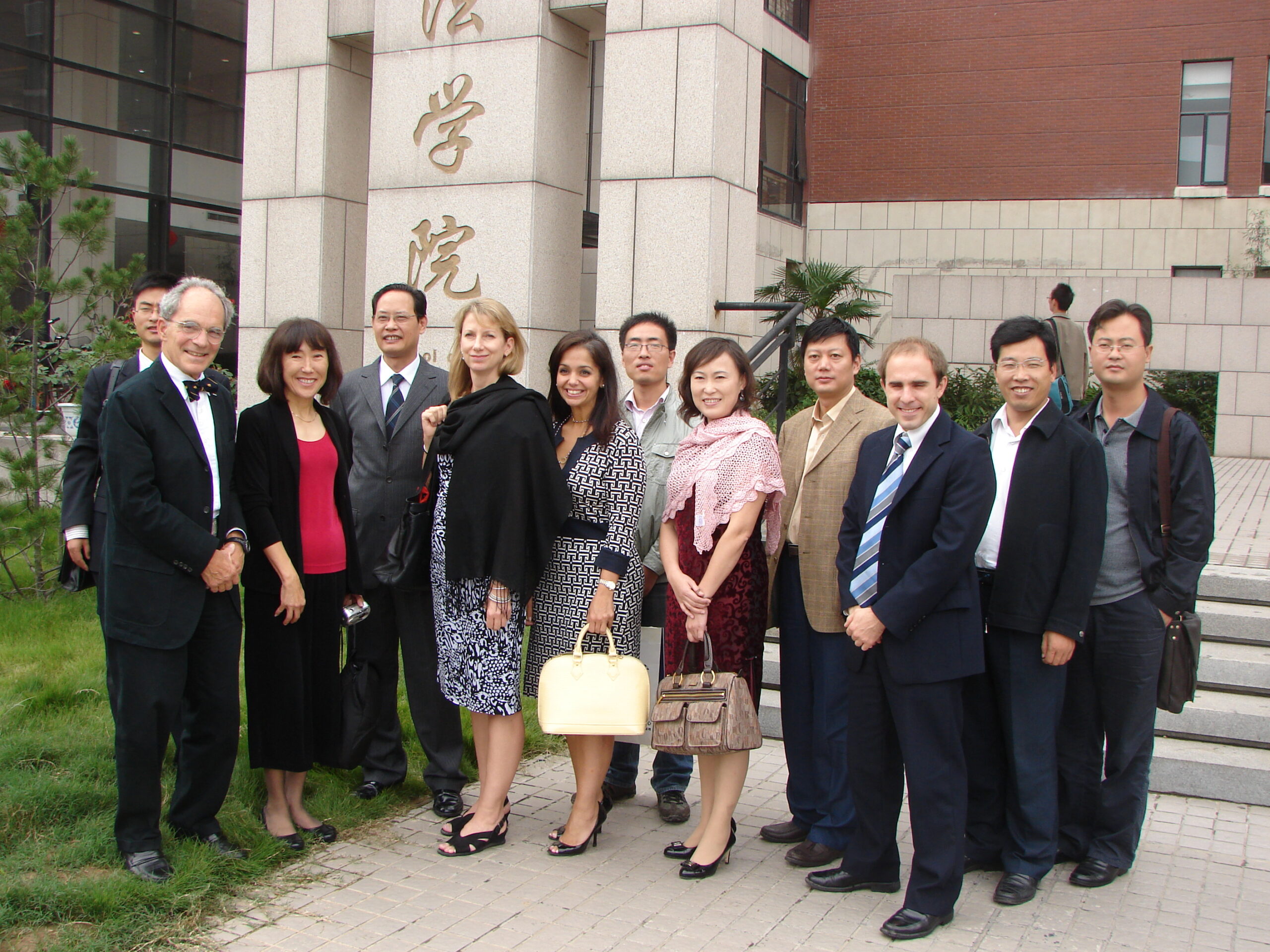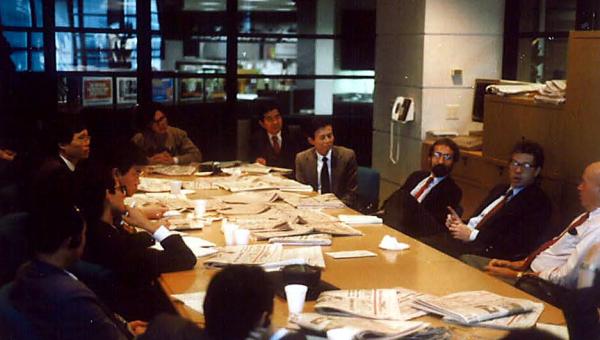In April 1972, the National Committee made history by hosting the Chinese Table Tennis Team in round two of what became widely known as Ping Pong Diplomacy. The watershed visit — the first-ever of a delegation from the People's Republic of China to the United States — set the Committee on its path of becoming the pre-eminent exchange organization between the United States and China.
The National Committee’s Track II Strategic Security Dialogue (at times called the Northeast Asia Strategic Security Dialogue) began in 1999 and stemmed from an earlier National Committee mil/mil program and the joint Stanford-Harvard Preventive Defense Project (PDP), a research collaboration of Stanford University and Harvard University's Kennedy School of Government set up by former Secretary of Defense William Perry and Assistant Secretary Ash Carter.
American and Chinese experts from academia, think tanks, and industry gather for a two-day dialogue exploring how significant climate change and energy developments are altering each country's energy outlook.
In 2011, the National Committee, in partnership with the Center for Legal Assistance to Pollution Victims at China University of Political Science and Law, sponsored a two-way exchange for environmental law professionals in China and the United States.
The National Committee, in partnership with the Institute for Sustainable Communities and with funding from the State Department's Bureau of Educational and Cultural Affairs, sponsored an exchange of emerging leaders from earthquake-affected areas of Sichuan and post-Katrina areas of the Gulf Coast designed to exchange ideas about sustainability in long-term post-disaster recovery.
The U.S. Foreign Policy Colloquium is an exclusive four-day program designed to provide 75 of the best and brightest Chinese graduate students studying at colleges and universities from across the United States a deeper and more nuanced understanding of the complex forces that shape American foreign policy and inform the U.S.-China relationship.
The Land Use and Public Participation program provided opportunities for sharing the successes and challenges of the American and Chinese experiences of public participation in land use decisions. Government officials, scholars, and experts in both countries benefited from this timely program, which was conducted in three phases in 2009.
The National Committee hosted a roundtable discussion with Ambassador Wu Jianmin, former Chinese ambassador to France and former president of the China Foreign Affairs University on September 9, 2009, in New York. Ambassador Wu was joined by Ambassador Lü Fengding, former Chinese ambassador to Sweden; Dr. Zhang Yuyan, director of the Institute of World Economics and Politics at the Chinese Academy of Social Sciences; and Ms. Xu Heming, deputy director of the Foreign Ministry Department of Policy Planning.
In 1989, trade and economic issues played a major role in the United States' relationship with Southeast Asia, and people from that region desired a better understanding of how the American economy functioned and affected the global economy. This was the first regional program carried out by the National Committee: the delegation was comprised of 11 Cantonese-speaking journalists from the PRC, Hong Kong, Singapore, and Malaysia.
In the summer of 1996, the National Committee brought together a group of NGO experts from the United States, Canada, and Thailand to meet with NGO leaders in Greater China.
